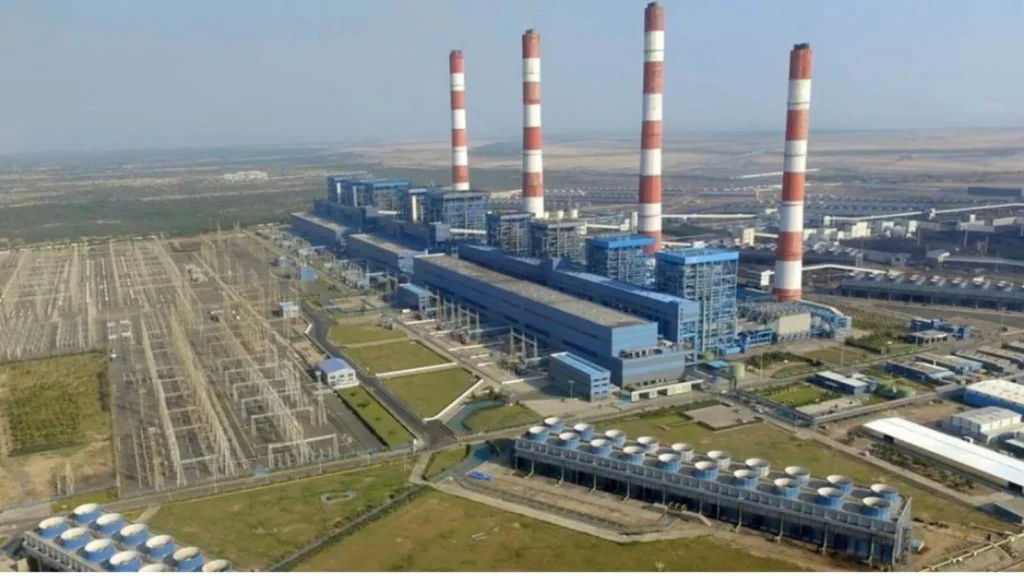Introduction
Adani Godda Power Supply has been urged by Bangladesh to fully restore electricity generation from its 1,600-megawatt plant in Jharkhand. This follows months of reduced power distribution due to payment delays, foreign exchange shortages, and technical issues. The Bangladesh Power Development Board (BPDB) is advocating for a return to full capacity while working to resolve overdue payments, contractual concerns, and pricing disputes.
Background of the Power Supply Cut
Adani Power, under a 25-year contract signed in 2017, supplies electricity exclusively to Bangladesh from its $2 billion power plant in Godda, Jharkhand. The plant operates two units, each with an 800-megawatt capacity. However, supply was cut in half on October 31, 2024, as Bangladesh struggled with a foreign exchange crisis, leading to delays in clearing payments.
One of the plant’s units was shut down on November 1, 2024, reducing the operational capacity to 42%. The Bangladesh Power Development Board (BPDB) had initially requested that Adani maintain a partial power supply, hoping to restore full capacity once financial conditions improved.
BPDB’s Efforts to Resume Full Power Supply
To address outstanding dues, BPDB has been making monthly payments of $85 million to Adani. In a bid to restore the full power supply, the agency has now requested the reactivation of the second unit. However, efforts to restart the unit have been hampered by technical issues.
BPDB Chairperson Md. Rezaul Karim stated, “As per our requirement today, they planned to synchronize the second unit, but due to high vibration, it didn’t happen.”
Despite ongoing payments, Bangladesh is working to reduce overdue balances and ensure uninterrupted power to meet the country’s growing energy demands.
Disputes Over Power Pricing
Pricing remains a significant point of contention. According to reports, Adani’s electricity costs 55% more than the average Indian power supplied to Bangladesh. The 2017 contract bases its tariff calculation on an average of two indexes, but Bangladesh officials argue that the pricing formula unfairly inflates costs.
In response, a Bangladesh court has ordered an expert committee to review the contract terms, with findings expected to be released later this month. Depending on the outcome, Bangladesh may push for contract renegotiations to establish fairer pricing terms.
Political and Legal Challenges

The contract between Adani and Bangladesh has been further complicated by legal and political factors. Bangladesh’s interim government has accused Adani of failing to pass on tax benefits that the Jharkhand plant received from the Indian government.
Additionally, in November 2024, U.S. prosecutors indicted Gautam Adani and seven other Adani executives for their alleged involvement in a $265 million bribery scandal in India. Adani Group has strenuously refuted the charges, calling them “baseless”.
Meanwhile, the Bangladesh government appointed a committee in September 2024 to reassess major energy agreements signed by former Prime Minister Sheikh Hasina. This move has raised concerns that the Adani-Bangladesh contract could be scrutinized more intensely, potentially leading to further renegotiations or even legal challenges.
Energy Demand and Future Prospects
The urgency to restore full power supply comes at a time when Bangladesh faces increasing energy demand. With its growing population and expanding industrial sector, uninterrupted electricity is vital for economic stability.
BPDB officials emphasize that any long-term power agreements must ensure affordable and stable electricity prices. The ongoing contract review will play a key role in determining whether the Adani deal continues under the current terms or undergoes modifications.
What’s Next for Adani and Bangladesh?
With Bangladesh seeking immediate power restoration and Adani navigating pricing disputes and legal battles, the coming weeks will be crucial. Officials from BPDB and Adani Power are set to hold virtual meetings to negotiate a solution. The expert committee’s contract review findings will also heavily influence the direction of future discussions.
If the review recommends changes to the pricing structure or suggests potential breaches of contract, Bangladesh may seek renegotiation or alternative power sources. However, any drastic shifts in the deal could impact Bangladesh’s energy security and diplomatic relations with India.
The situation remains fluid, and stakeholders on both sides are eager to find a resolution that balances affordability, sustainability, and contractual fairness.
Conclusion
The Bangladesh-Adani power agreement remains a critical issue that could shape the country’s energy policies for years to come. While BPDB is pushing for a return to full supply, Adani’s pricing model and legal troubles have added layers of complexity to the negotiations.
As Bangladesh aims to secure stable and cost-effective electricity, the outcome of the contract review and ongoing negotiations will be pivotal. If a favorable agreement is reached, Bangladesh could regain full power supply while ensuring financial stability and energy security. However, if disputes persist, alternative energy strategies may need to be explored.
For now, all eyes are on the upcoming meetings between BPDB and Adani, as well as the findings of the expert committee, which could reshape the landscape of Bangladesh’s energy sector.
Stay tuned for more updates on the Bangladesh-Adani power negotiations as the situation develops.


